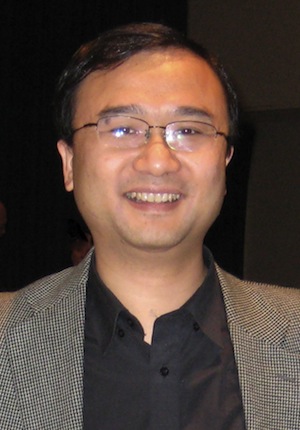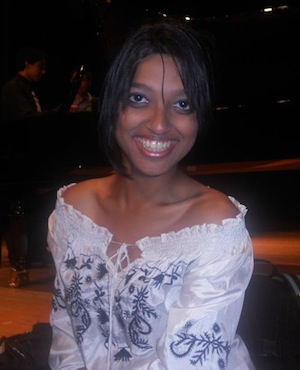
|
Fei Xu is a member of the artist-faculty at the IIYM Summer Music Academy and teaches during the regular year in his studio at the New Century Conservatory in Chandler, Arizona. He is considered one of the world's most important teachers of pre-college students. His students have been top prizewinners in state, national, and international piano competitions, including the MTNA-Kawai Junior Performance, IIYM International Piano Competition, Stravinsky International Piano Competition, Missouri Southern International Piano Competition, Gina Bachauer International Piano Competition, and the National Foundation for the Advancement of Arts. A former assistant professor in Central Conservatory of China, Fei Xu holds both B.M. and M.M. degrees from that institution. He has been named Outstanding Teacher of the Year four times by the Arizona Young Artist Committee.
Lots of young pianists struggle mastering technique, but not your students! Do you have a special approach to building a fine technique?
It’s important to start by establishing good habits, even at age four or five. I begin by working with each student to develop firm fingers, to support the weight of the hand. I start with exercises and then have them play Old MacDonald and other folksongs, all with the idea of transferring weight from finger to finger. I call it “walking”. After that, we work on legato and then rotation. I introduce the concept of projection and focus on releasing the finger and weight from the key.
We work through a lot of pieces, once I am sure students understand the basic concepts. I use a mix of materials: N. Jane Tan’s Recital Études and Finger Plus, the John Thompson Junior Primer, then the Alfred Lesson Books all the way to Book Three. The students don’t get bored because there is great variety. I do all of this in the first year. Later comes Bastien Piano Literature and Czerny, op. 599, 849 and 299; also Hanon and scales.
I make sure students understand key concepts of playing: balance, dynamics, and gestures. Problem solving is the next aspect - how to practice to fix trouble spots. I help them analyze the problem, so that they can solve it themselves later. Each student is different: sometimes their gesture isn’t helping the sound, or they anticipate each physical movement too much. Some of them have hands that are too soft, others rush. We cope with problems individually.
I’m always amazed at the interpretive polish of your students—and often on very difficult pieces. Do you have a special way of teaching them to practice to achieve this?
We listen to pieces first, to get a lot of ideas. I don’t believe that at an early age this is possible to achieve by reading alone. I like to have students listen to a lot of music from different periods, so they get a concept of style. They need to know what is allowed in each style period, and what is not. We look at pieces and find the drama and conflict. I look for a performance that is logical emotionally. We supply our own interpretive marks when necessary, to shape the music. I ask a lot of questions. Next, we analyze the score, looking for big phrases and finding the melody. I ask each student: what key are we in? where is the development section? what musical material is used? We do all of this at the same time they are learning the piece - I never wait until the end.
How did your own interest in piano start?
I didn’t start learning until I was eleven. My mom bought a piano - it was half of a year’s salary just to buy it. We got some help from my uncle. She was a pianist for a Chinese Dance Troupe and she brought me to rehearsals. I was very interested. She was a pianist so I enjoyed it - I liked the complexity of the sound and the completeness. I was so proud of myself for doing 2½ hours practice at age eleven. Compared to some of today’s kids, it’s nothing! My dad is a singer, so music was part of our family life. But I don’t have a good voice, so I gave up on that! My mom lives in Beijing and is still teaching and practicing two to three hours every day.
We hear so many outstanding young pianists from the People’s Republic of China. What do you think makes them so successful?
Lots of reasons! The top kids get excellent training from an early age - they lock into their future from the beginning. They are single-minded in pursuing their goals and dedicated. They practice six to eight hours a day on average. Many universities have professional, pre-college divisions that require much less homework than regular school. Young pianists in China get lots of parental support. In many families, one parent sacrifices his or her job and family life to support the talented child.
What do you like to do when you are relaxing away from the piano?
I don’t have too much time! I home-school our two kids on all subjects. But when I do relax, I play games with my kids. I like to read books about piano, and also Reader’s Digest books. I’m a big basketball fan and the Phoenix Suns are my team. I try to squeeze some time out to watch games when I can.
|



